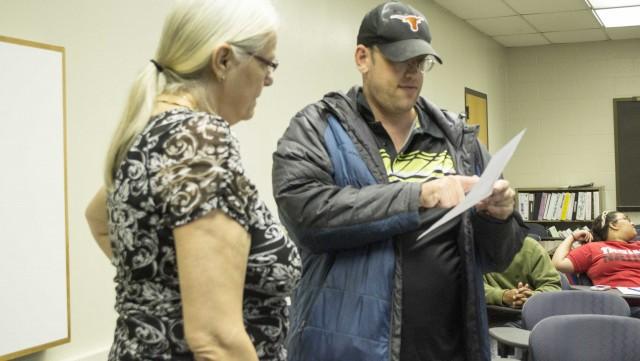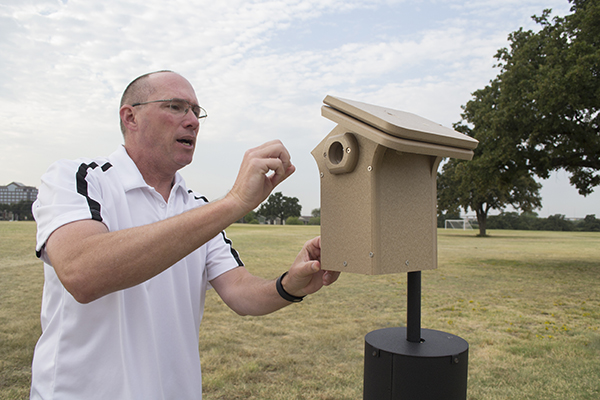By Alex Aviles/ reporter
Diabetes is more common than many people think, a representative from Baylor All Saints Medical Center said Nov. 9 on NW Campus.
In the United States alone, 41 million have pre-diabetes, and 29 million already have diabetes, Kristin Geist said. In addition, one of every four people with diabetes have no clue that they already have it.
During the diabetes education luncheon, Geist discussed the symptoms as well as ways to prevent or manage diabetes using just a healthier and slightly more active lifestyle.
“Make time to do something active and fun,” she said. “Aim for 30 minutes or more most days of the week. Physical activity increases insulin sensitivity and decreases risk of Type 2 diabetes.”
The chances of a person having diabetes doesn’t have to directly be tied to a person’s weight or diet, Geist said. It can completely rely on a person’s genetics.
“The total cost of diabetes (direct and indirect) is about $174 billion with direct medical costs being around $116 billion,” she said.
Type 2 diabetes comprises about 90 percent of diabetes cases and can be found in people 30 years of age or older. This type of diabetes can raise a person’s risk of heart attack and stroke since this is commonly paired with high blood pressure and high cholesterol.
To help manage a healthy diet to avoid or manage diabetes, a highly recommended diet has been the Mediterranean diet, which focuses on plant-based foods, whole grains and fats such as olive oil.
“A good fat would be a fat that is not solid at room temperature,” she said. “So think of things like butter, and those are things you’d want to avoid.”
This diet is also recommended for anyone with a chronic illness.
Geist was diagnosed with Type 1 diabetes in 1997 and has since continued to educate youth on diabetes management as well as train new and experienced staff about diabetic care and the signs that a person might have diabetes. She is also a nurse at camps for children with diabetes.
Student development associate Alicia Coleman said the discussion was beneficial.
“My husband’s family has a few cases of diabetes, so it’s good to be aware of dietary restrictions and symptoms,” Coleman said.




























